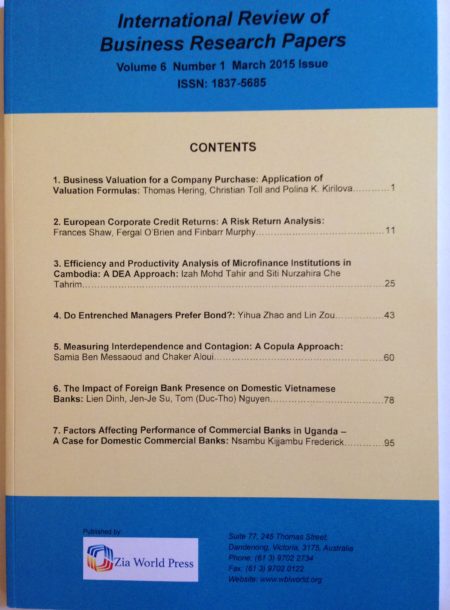International Review of Business Research Papers
Vol. 16. No.2, September 2020, Pages: 46– 65
Influence of Culture on the Effectiveness of Internal Audit: A Literature Review
Jafar Ojra, Abdullah Promise Opute and Azizah Sabti
Purpose: Scholars have emphasised the importance of internal audit to effective decision making and improved organisational performance. Within the discourse, it has also been emphasised that the level of internal audit quality and effectiveness hinges on the contingency factors. Building on that contingency foundation, this study reviews literature on the culture based contingencies. Equally, this study flags relevant research directions towards advancing knowledge in this area.
Design/methodology/approach: Based on the qualitative methodology, this study utilises systematic review approach to capture the state of knowledge and existing gaps.
Findings: Building on motivation theory, this study reminds of the significant role that culture plays in organisational dynamics. This study reminds that while internal audit would aid effective decision making and extendedly organisational performance - outcomes that are contingent on internal audit quality and internal audit effectiveness, the extent to which quality and effectiveness of internal audit can be achieved would depend on the national and organisational culture features that condition internal audit practices.
Research implications: This study contributes to the understanding of the role that culture plays in internal audit quality and effectiveness. Furthermore, this study contributes to body of knowledge by flagging critical directions for future research.
Originality/value: Utilising the systematic review approach, this study enhances the discourse on the cultural perspective of internal audit effectiveness by capturing the state of knowledge and also drawing attention to gaps in the literature.

